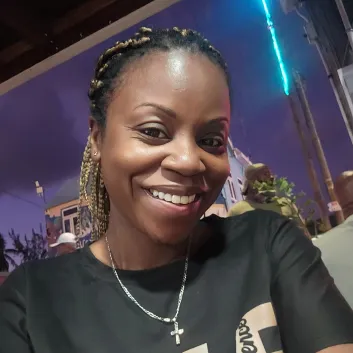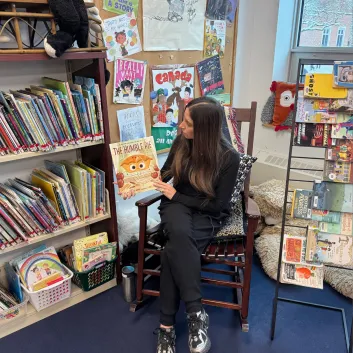- From the Community
- June 18, 2024
Pedaling Forward
How MS Bike Helped Me Rediscover My Strength
“Over 20 years ago, I was the second person in my family diagnosed with multiple sclerosis. It was difficult during the first part of my MS journey. I had relapses; there were lots of ups and downs. But over those two decades, I learned how to live a more balanced life with MS. I'm fortunate that research advances have provided a disease-modifying therapy that works well for me. I also benefit from a combination of diet, fitness, and a positive outlook.
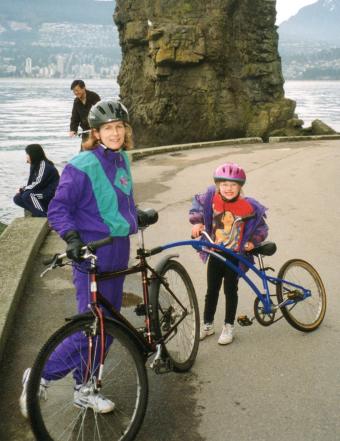
When I was first diagnosed, I reached out to MS Canada for support. I needed to talk to someone who understood what it was like to juggle raising two young kids while struggling with MS fatigue. MS Canada connected me with a mother who had raised her children after being diagnosed. Her advice started me on the right path to balance my energy for family commitments. That support was critical in helping me come to terms with my diagnosis. After suffering a terrible relapse and having to regain my strength, I knew that more support needed to be available for others like me, so I started volunteering with MS Canada.
I'm very proud of my volunteer work. What truly brings me joy is spreading awareness about MS. One of my proudest achievements is the MS Ambassador program. We started it in Vancouver and with a dedicated group of volunteers, we've expanded it across Canada. Through the MS Ambassador program, I help others share their stories and raise awareness about the daily realities of living with MS–it's incredibly fulfilling.
Each person living with MS can contribute in different ways. I've volunteered, fundraised, and shared my story. I encourage others to find their own way to give back.
Living with MS has taught me many lessons. One key lesson is the importance of modifying how I exercise. I used to push everything to the max, but now I exercise at about 70-75% of my previous intensity. This approach helps me build and maintain strength, which is crucial when I experience a relapse.
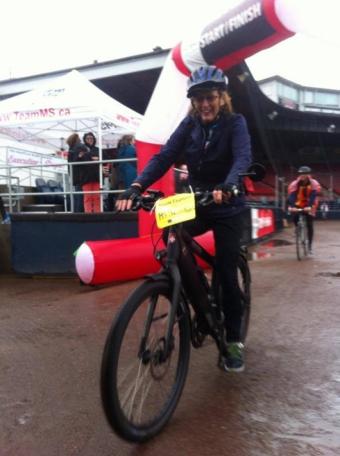
Twelve years ago, I set a personal goal to start biking again. During a bad relapse, I lost my balance and was unable to cycle. As my strength increased, I decided to push myself and combine my personal fitness goal with my desire to raise awareness and funds for people affected by MS. There was no better way to do this than by participating in MS Bike. In 2014, I challenged myself to do a one-day MS Bike event and I upped that challenge in 2015 to the two-day MS Bike - Fraser Valley event. As this is my tenth year participating in MS Bike, I’ve decided to up my personal goal and ride in two, two-day events: Leduc to Camrose and Fraser Valley.
That first year doing the two-day event in Fraser Valley was both a physical and emotional challenge for me. I rode day one with the support of some friends and I remember thinking, ‘how I am going to get through day two?’ I mentioned this at the event dinner and within minutes, the EASYRIDERS invited me to join their team. It’s such a great example of how supportive the MS community is. As I crossed the finish line on day two, I stumbled off my bike and cried tears of joy.
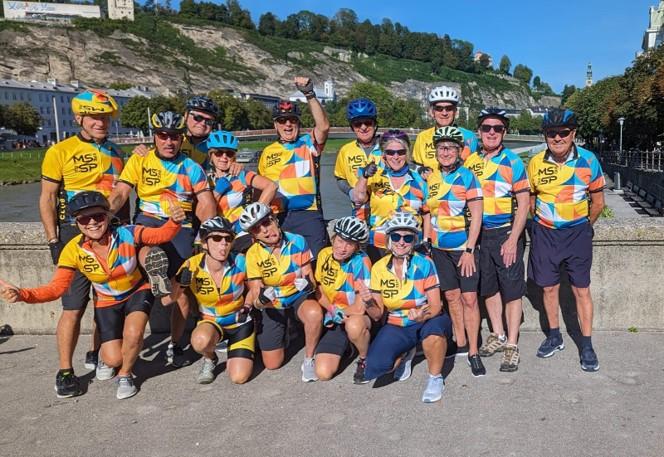
Not only have I continued to participate in MS Bike annually, but I also use it as a platform to show others that even though I have MS, I can continue to do what I love. The EASYRIDERS team members have become my good friends. In September, our team did a European cycling tour together. We wore our MS Bike jerseys and rode through the hills of Austria singing, ‘The hills are alive with the sound of EASYRIDERS.’
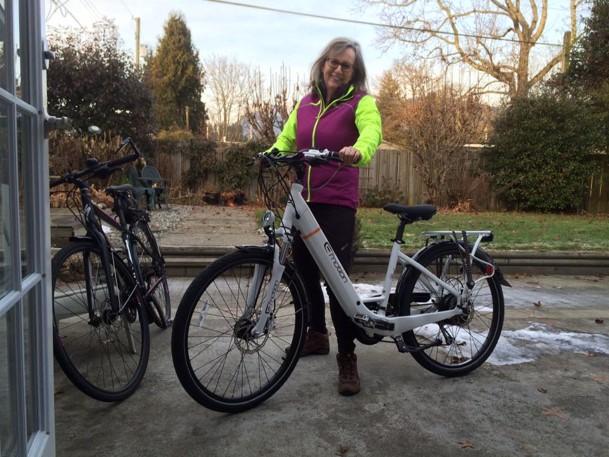
Living with MS can be extremely unpredictable. Some days you can do things and other days you can't. I push myself, but I also pull back when it's physically or cognitively too tough. I've learned to adapt how I accomplish things that bring me happiness and fulfillment. I’m able to continue cycling today because I transitioned from a regular bike to a pedal-assist bike. When I was deciding to switch, one half of me was saying, ‘You’re giving in to your disability,’ and the other half was saying, ‘It’s a tool to continue doing what you love to do.’ It was the best decision I could’ve made. Having the assist allows me to cycle with my friends for longer distances and more frequently, and I’m much happier.
Each year as I write my letter to friends and family asking for support, it reminds me how lucky I am. I’ve benefitted from the treatments offered today for MS. I had support from MS Canada when I needed it most. I have a community around me that contributes to my fundraising. I volunteer as an MS Ambassador and raise awareness for MS. And last but not least, I look forward to the MS Bike weekend every year, where I will have lots of laughs with my friends.
When I think of the future of MS, I'm hopeful. While the cause of MS is still unknown and there is no cure, many advancements have been made in MS research. Today, people diagnosed with MS have more opportunities for a normal life than I did 20 years ago. I'm encouraged by research and the recent findings connecting Epstein-Barr virus and MS. I look forward to a future where vaccines for Epstein-Barr might prevent MS, allowing my grandchildren to live without knowing this disease.
Investing in MS research is crucial for achieving our goal of a world without MS. It provides hope for those living with MS that one day, there will be a cure.”
If you’re interested in learning about the MS Ambassador program and/or other volunteer opportunities, click here.
- Log in to post comments
